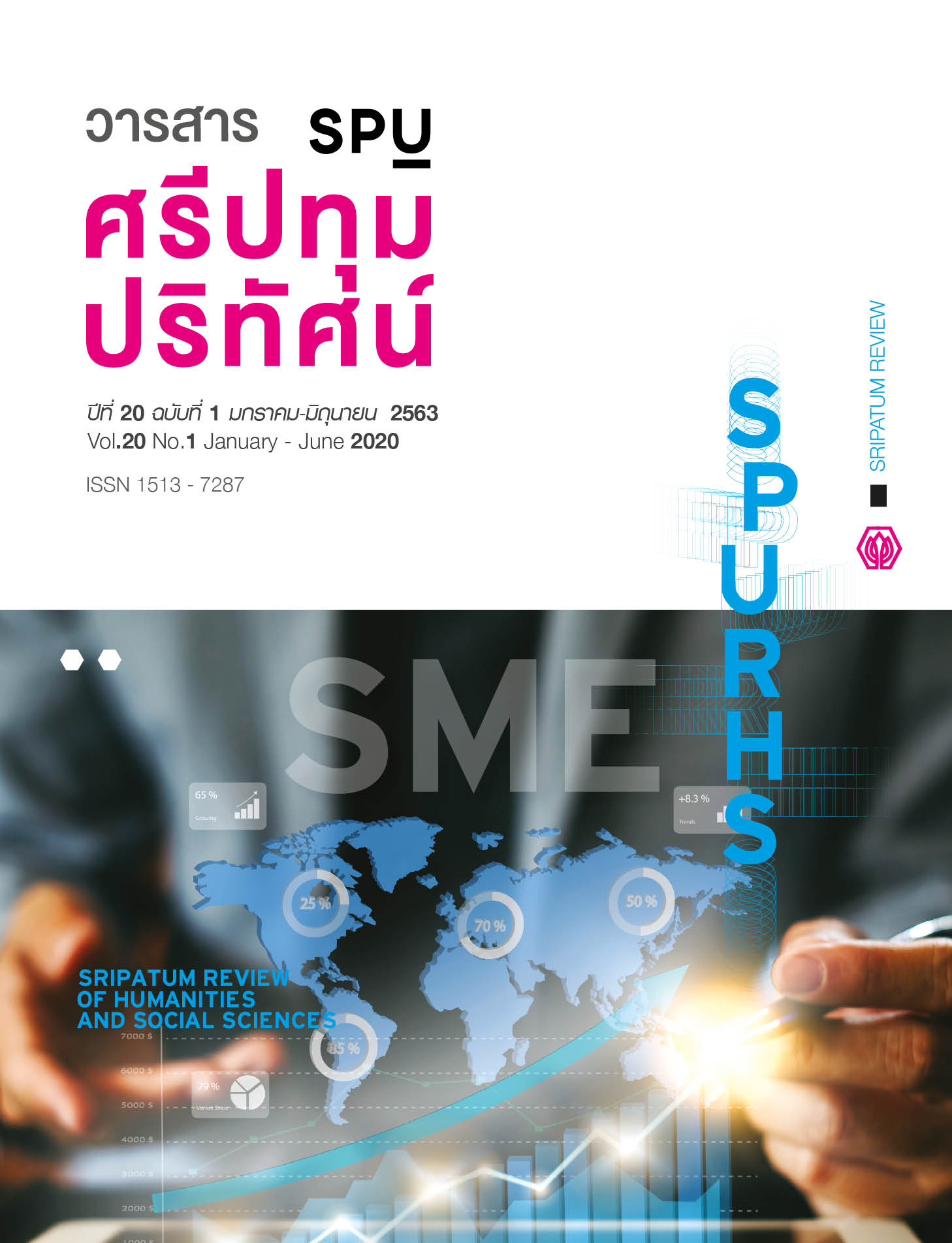Reciprocal Teaching Method for Enhancing Thai EFL Learners’ Reading Comprehension Ability
Main Article Content
Abstract
The purposes of the present study were (1) to compare the effectiveness of the reciprocal teaching method between the experimental and control groups, and (2) to investigate the reading comprehension achievement of EFL learners with different proficiency levels who were taught with the reciprocal teaching method, as classified by the Oxford Reading Comprehension Placement Test (2015). The total number of 164 EFL learners at Nakhon Sawan Rajabhat University students took part in this study. Seventy-three first year EFL participants were selected by purposive selection. Then, they were randomly assigned into two groups: a control group with 33 EFL learners receiving the traditional teaching method, and 40 EFL learners in the experimental group receiving the reciprocal teaching method. In order to obtain the required data, three instruments were utilized: The Oxford Reading Comprehension Placement Test (2015), a learning achievement test for pre-testing and post-testing, and a semi-structured interview form. The results showed that the different proficiency EFL learners in the experimental group had high reading comprehension ability achievement. Also, they improved reading comprehension skills (e.g., finding a topic and main idea, vocabulary, and grammar), and they can use metacognitive reading strategies to complete the reading task in small group work. Discussions and findings are also offered.
Article Details
1. กองบรรณาธิการสงวนสิทธิ์ในการพิจารณาและตัดสินการตีพิมพ์บทความในวารสาร
2. บทความทุกเรื่องจะได้รับการตรวจสอบทางวิชาการโดยผู้ทรงคุณวุฒิ แต่ข้อความและเนื้อหาในบทความที่ตีพิมพ์เป็นความรับผิดชอบของผู้เขียนแต่เพียงผู้เดียว มิใช่ความคิดเห็นและความรับผิดชอบของมหาวิทยาลัยศรีปทุม
3. การคัดลอกอ้างอิงต้องดำเนินการตามการปฏิบัติในหมู่นักวิชาการโดยทั่วไป และสอดคล้องกับกฎหมายที่เกี่ยวข้อง
References
Ahmad, N., Choo, T. O. L., and Eng, T. K. (2011). Effects of reciprocal teaching strategies on reading comprehension. Reading Matrix: An International Online Journal, 11(2), 140-149.
Ali, A. M., and Razali, A. B. (2019). A Review of Studies on Cognitive and Metacognitive Reading Strategies in Teaching Reading Comprehension for ESL/EFL Learners. English Language Teaching, 12(6), 94-111.
Alsaraireh, Mohammad and Hamid, Ku. (2016). The Effect of the Reciprocal Teaching Model on Developing Jordanian Students' Reading Comprehension at Mutah University. International Journal of Linguistics, 8(6), 69-93. 10.5296/ijl.v8i6.10448.
Arif, A. (2016). Increasing the Students’ reading Comprehension by Using Reciprocal Teaching Strategy. Journal Pendidikan Bahasa, 3(1), 1-14.
Ayun, Q., and Yunus, M. (2017). The Efficacy of Reciprocal Teaching Method in Teaching Reading Comprehension to EFL Learners. ELT Echo: The Journal of English Language Teaching in Foreign Language Context, 2(2), 134-146.
Child and Adolescent Psychology. London, UK: Institute of Education, University College London.
Chonprasert, V. (2013). Metacognitive Reading Strategies to Improve Reading Comprehension and Performance. Sripatum Review of Social Sciences and Humanities, 13(2), 94-105.
Chou, I. C. (2016). Helping Learners Learn in EMI Courses Using Reciprocal Teaching: A Case Study of a Taiwan University. Asian Education Studies, 1(2), 37-43.
Cubukcu, F. (2008). How to Enhance Reading Comprehension through Metacognitive Strategies. Journal of International Social Research, 1(2), 83-93.
Dagostino, L., Carifio, J., Bauer, J. D., Zhao, Q., and Hashim, N. H. (2014). Assessment of a Reading Comprehension Instrument as It Relates to Cognitive Abilities as Defined by Bloom's Revised Taxonomy. Current Issues in Education, 17(1). 1-15.
Getkham, K., and Rerkwanchai, K. (2016). A Study of Thai Graduate Learners’ Use of Cognitive and Metacognitive Reading Strategies in Reading Comprehension Tests. The Proceeding of 7th the International Conference on Language and Communication, Osaka University, Japan, 172-182.
Komariah, E., Ramadhona, P. A. R., and Silviyanti, T. M. (2015). Improving Reading Comprehension through Reciprocal Teaching Method. Studies in English Language and Education, 2(2), 87-102.
Meniado, J. C. (2016). Metacognitive Reading Strategies, Motivation, and Reading Comprehension Performance of Saudi EFL Learners. English Language Teaching, 9(3), 117-129.
Palinscar, A. S., and Brown, A. L. (1984). Reciprocal Teaching of Comprehension-Fostering and Comprehension-Monitoring Activities. Cognition and instruction, 1(2), 117-175.
Prastyo, H., and Rodli, M. (2017). Applying Reciprocal Teaching Method in Teaching Reading. Linguistics and Literature, 1(2), 112-122.
Pudjobroto, A. H., Purwoko, Y. D., and Setyaningsih, E. (2014). The Use of Reciprocal Teaching to Improve Students’ reading Comprehension Skill. English Education, 2(3), 394-401.
Rastegar, M., Kermani, E. M., and Khabir, M. (2017). The relationship between metacognitive reading strategies use and reading comprehension achievement of EFL learners. Open Journal of Modern Linguistics, 7(02), 65-74.
Relton, S. K. (2017). Reciprocal Teaching: An Exploration of its Effectiveness in Improving the Vocabulary and Reading Comprehension of Key Stage Two Pupils with and without English as an Additional Language. Thesis of Doctorate in Professional Educational
Soto, C., Poblete, M., and de Blume, A. P. G. (2018). Exploring the Meta-Comprehension Abilities of Students with Intellectual Disabilities. International Journal of Special Education, 33(2), 233-247.


